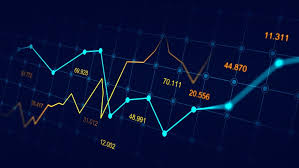
Mastering Forex Trading Practice: Strategies and Techniques
Forex trading is a vast and dynamic field that requires both theoretical knowledge and practical experience. To succeed in this highly competitive sector, traders need to develop a disciplined approach and a well-thought-out trading strategy. Whether you are a beginner learning the ropes or an experienced trader looking to refine your skills, the importance of forex trading practice cannot be overstated. One of the best ways to gain hands-on experience without financial risk is to leverage demo accounts offered by platforms like forex trading practice Qatar Brokers. In this article, we will explore essential aspects of forex trading practice, including effective strategies and risk management techniques.
Understanding Forex Trading
Forex, short for foreign exchange, involves buying and selling currencies with the aim of making a profit. The forex market is decentralized and operates 24 hours a day, allowing traders from all over the world to participate. With daily trading volumes exceeding $6 trillion, it is the largest financial market in the world. The currency pairs, such as EUR/USD or GBP/JPY, reflect the value of one currency against another. Understanding how to read these pairs is fundamental for successful trading.
The Importance of Practice
Just like any other skill, mastering forex trading takes time and perseverance. Practice plays a critical role in developing the necessary skills and understanding the market dynamics. Many new traders make the mistake of jumping straight into live trading with real money before they fully grasp how the market works. This can lead to significant financial losses. By using a demo account, you can practice your trading strategies, understand how to analyze the market, and learn how to manage emotional responses to winning and losing trades without any financial risk.
Utilizing Demo Accounts
Demo accounts are provided by most forex brokers and allow traders to practice in a simulated environment that mirrors real market conditions. You can execute trades, test strategies, and learn about market analysis and technical indicators. The key advantages of using demo accounts include:
- No Financial Risk: You can learn and practice without risking your own capital.
- Real Market Conditions: Demo accounts operate using real-time data, so you can experience how market events affect prices and trading opportunities.
- Strategy Development: Test different trading strategies and find the ones that work best for you.
- Discipline and Patience: Practice helps you develop the discipline needed to adhere to your trading plan and manage emotions.

Developing a Trading Strategy
A solid trading strategy acts as your roadmap in the forex market. It defines when to enter and exit trades, how much to risk, and the conditions that must be met before executing a trade. Here are some steps to develop your own trading strategy:
- Set Your Goals: Define what you want to achieve—whether it’s steady income or long-term capital growth.
- Choose Your Trading Style: Day trading, swing trading, positional trading; understand which style suits your personality and lifestyle.
- Market Analysis: Use technical and fundamental analysis to identify trading opportunities.
- Risk Management: Determine how much capital you are willing to risk on a single trade.
- Backtest Your Strategy: Use historical data to evaluate the effectiveness of your strategy.
Risk Management Techniques
Risk management is crucial in forex trading. The high leverage available in forex can lead to significant gains, but it can also result in substantial losses. Here are some risk management techniques:
- Set Stop-Loss Orders: A stop-loss order is a predetermined price at which you will exit a losing trade. This helps to limit potential losses.
- Position Sizing: Determine the amount of capital to risk on each trade based on your overall account size and risk tolerance.
- Diversification: Avoid putting all your capital into a single trade. Diversifying your trades across different currency pairs can reduce risk.
- Keep Emotions in Check: Emotional trading can lead to impulsive decisions. Stick to your trading plan and avoid overreacting to market fluctuations.
Continuous Learning and Adaptation
The forex market is constantly evolving. To remain successful, traders must be willing to learn and adapt. Here are some methods to enhance your trading knowledge:
- Educational Resources: Participate in webinars, read books, and follow reputable financial news sources.
- Join Trading Communities: Engage with other traders in forums or social media groups to share experiences and strategies.
- Keep a Trading Journal: Document your trades, strategies, and any lessons learned to track your progress and improve over time.
Conclusion
Forex trading is a multifaceted endeavor that combines both skill and strategy. By focusing on practice and embracing the use of demo accounts, traders can cultivate their abilities without financial pressure. It’s crucial to develop a comprehensive trading strategy, incorporate effective risk management techniques, and commit to ongoing education. As with any skill, mastery takes time and effort, but with the right approach, you can enhance your forex trading practice and work toward becoming a successful trader.

Добавить комментарий